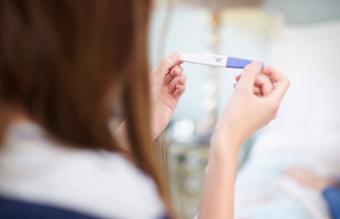
If you use the Mirena IUD as your method of birth control, then you are aware of its effectiveness and convenience. However, you may also wonder about the safety of getting pregnant after Mirena removal.
About Mirena
Mirena is a flexible, plastic, t-shaped, intrauterine contraceptive device that is inserted into the uterus. Although it is estrogen-free, it does contain and release the hormone progestin. Mirena can be used for up to five years and is more than 99 percent effective at preventing pregnancy.
How Mirena Works
Mirena releases small amounts of the hormone progestin into the uterus. It proceeds to work in a number of different ways:
- It thins the uterine lining.
- It thickens cervical mucus to stop sperm from entering the uterus.
- It prevents sperm from reaching and fertilizing the egg.
- It partially suppresses ovulation.
Benefits of Mirena
There are a number of benefits when using the Mirena which include:
- It can be used if you've had a child or not.
- If you want long-term protection but not a permanent form of birth control.
- It enables spontaneity and eliminates interrupting sex in order to take care of contraception.
- No need to think about birth control, unlike the birth control pill which has to be taken every day.
- No risks of estrogen-related side effects.
- Can be used while breastfeeding.
- May decrease or stop menstrual periods.
- Can be removed at any time if you decide to try for pregnancy.
Mirena Side Effects
Like any type of birth control, Mirena does have some potential drawbacks. Since it does not provide a barrier between partners, there is no protection against sexually transmitted diseases and should only be used if you are in monogamous relationships. Other side effects include:
- Ovarian cysts
- Headaches
- Acne
- Breast tenderness
- Irregular bleeding or spotting
- Changes in menstrual cycles
- Mood changes
- Cramping, back or pelvic pain
There is the possibility the Mirena may imbed in the uterine tissue, perforate through your uterus or expel from your uterus, but the chances of this happening are rare.
Fertility and IUD
You may plan on using Mirena or another IUD until you decide that you are ready to try for pregnancy. Although Mirena and most IUDs are designed for up to five years of use, they can easily be removed at any time by your physician.If you are worried about ovulation after Mirena removal, it's not necessary. The Mirena IUD does not affect ovulation/fertility. Once the IUD is removed, the hormones it releases are removed with it, so once it is removed your fertility should quickly return to normal. Ovulation/fertility can return even as soon as the next cycle. If your cycle returns to normal right away, pregnancy right after Mirena removal is possible. You could possibly conceive in the first month, however on average it takes about 4 to 6 months to get pregnant after your IUD is removed.
Safety of Becoming Pregnant after Mirena Removal
If you didn't have any complications from using Mirena, then you shouldn't have any problems conceiving and carrying a healthy pregnancy. In fact, there is very little reason to worry about the safety of becoming pregnant after Mirena removal assuming that you are healthy. Pregnancy after Mirena removal isn't a cause for concern for most women.
Risks Associated With the Mirena
If you happen to conceive while using the Mirena IUD, you are at a much higher risk of developing an ectopic pregnancy. If you begin to experience heavy bleeding and pain while using the Mirena, contact your doctor immediately.
Other problems that occur if you get pregnant while on the Mirena include miscarriage, severe infection, premature delivery (if pregnancy continues), or even death. Even though the chances of conceiving with this form of birth control are less than 1 percent, be sure to contact your physician if you have any pregnancy symptoms.
Deciding if Mirena Is Right for You
There are many things to consider when deciding if the Mirena IUD is right for you. If you have had pelvic infections, certain reproductive or breast cancers, liver disease, uterine fibroids or unexplained vaginal bleeding, you may not be able to use the Mirena. You and your doctor will discuss any concerns about your health history and determine from there whether or not the Mirena is right for you.







